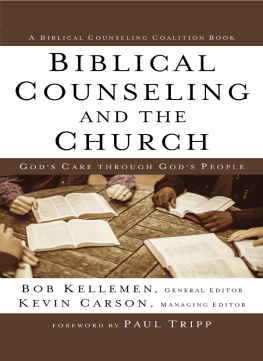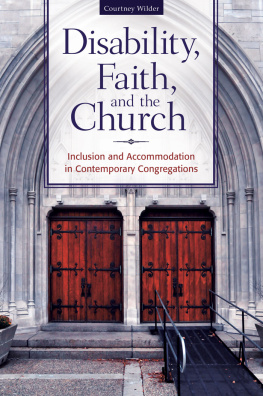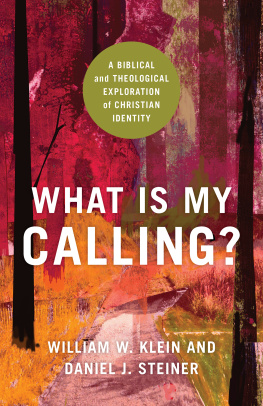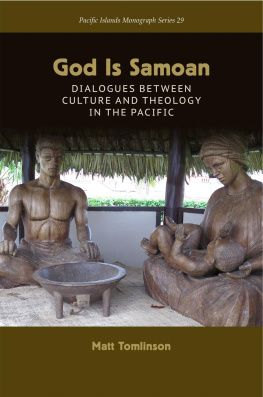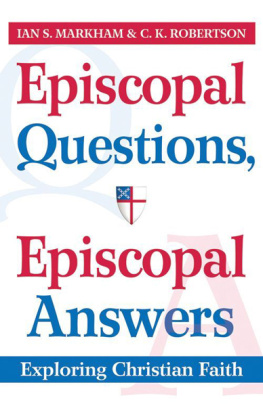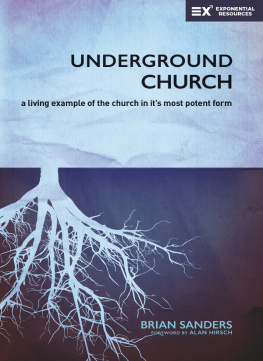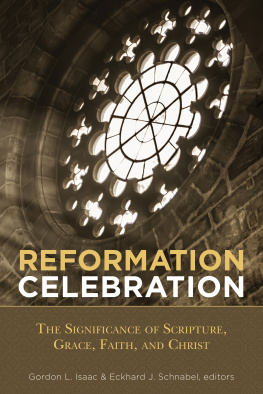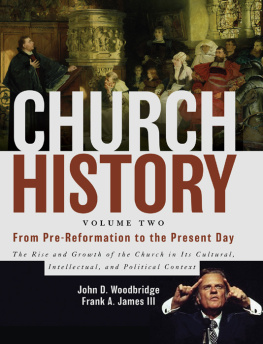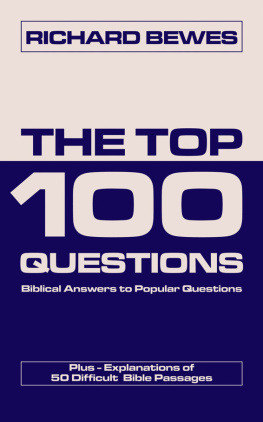We Are Theologians
WE ARE
THEOLOGIANS
Strengthening the People of God
FREDRICA HARRIS THOMPSETT

Copyright 2004 by Fredrica Harris Thompsett.
All rights reserved. No part of this book may be reproduced, stored in a retrieval system, or transmitted in any form or by any means, electronic or mechanical, including photocopying, recording, or otherwise, without the written permission of the publisher.
A catalog record for this book is available from the Library of Congress
ISBN 978-1-59628-000-7
Seabury Books
445 Fifth Avenue
New York, NY 10016
www.churchpublishing.org
An imprint of Church Publishing Incorporated
Printed in the United States of America
FOR
BRUCE ALFRED THOMPSETT
(19391987)
Love is as strong as death.
(Song of Solomon 8:6)
PRAISE FOR WE ARE THEOLOGIANS
This is the most thoughtful, clear, and stimulating book on the ministry of the laity that I have read since reading A Theology of the Laity by Hendrik Kraemer a generation ago.... It is Anglican theology at its best and precisely relevant for the mission of the church.
John Coburn
Thompsett uses a wide-angle lens to give us a revitalized understanding of the church. She summons us all to the adventure of change.
Marianne H. Micks
[She] invites her readers to embark upon a search for definition and meaning in Holy Scriptures, in the history and theology of the church, and in contemporary life.
Mary Sudman Donovan
Parish educators take note:... old and new members alike will have a clearer picture of how we all must take responsibility for our future as the church.
Flower Ross

TABLE OF CONTENTS

PREFACE
WHEN I WAS a child growing up in the Episcopal Church, a new resource known as The Seabury Series was being implemented in the Sunday school at my parish church. Sunday after Sunday my classmates and I learned about the mighty acts of God. We studied stories about Jesus, and were freely encouraged to ask question after question. It was great fun, so I thought, to be learning about God in such an engaging way. I was hooked on a delightful occupation, a habit of studying God, a habit which I later learned to call theology. Now I am pleasantly surprised to be reunited with the Seabury emphasis on good education for all.
I like the idea that We Are Theologians is a classic, even though, to a historian, that word typically signals ancient ages and dusty tomes. Still, if we look at the wider definition of the word, the listings also include a work of enduring excellence and authentic. Perhaps it is a streak of authenticity that resonates with readers and accounts for the question I have repeatedly been asked over the past fifteen years: Where can I purchase that book about laity? One persistent fan described We Are Theologians as ahead of its time. I wonder if instead this book offers glimpses of courage and leadership as they have, since time immemorial, been called forth from ordinary people by an extraordinary God.
It seems to me that Christian churches have often been behind the times in pursuing the fullness of biblical and early Christian visions of the gifted, trusted, and sent people of God. Although I wrote this book at a time when many in the church were rhetorically enthusiastic about claiming lay ministry, official emphasis still focused on a learned clergy. I was hungering for a wider, more expansive reality of an educated church and sensed that others were also experiencing this need. I turned my efforts toward writing We Are Theologians in order to invite all people of God, particularly laity, to heed, study, and follow the call of God. I credit the title to Erasmus of Rotterdam, the scholarly Christian humanist of the Reformation, who upon the publication of the Bible in the languages of the common people delightedly exclaimed that in their daily lives, All may be theologians.
We Are Theologians picked up and continued my childhood quest of exploring questions about God in conversation with others. It began as adult education lectures for various conferences and dioceses. In effect, We Are Theologians was field tested for over ten years, honed by humor, storytelling, and the joy of working with others as they discovered and claimed their own theological voices. Most, though not all, of my companions on this journey were laity. More than a few transforming moments occurred as they struggled with, were surprised by, and eventually claimed the reality that they were theologians, people with theological commitments, preferences, questions, and liberating insights about God.
As this new century begins, we are being drawn back to the living waters of the baptismal font. We Are Theologians is offered again with the hope and prayer that new and continuing generations will come to claim and share their own theological voices and wisdom.
February 2004

Chapter One
GODS WORK AND OURS
A Voyage of Discovery
There is an excitement to exploration, a rush of adrenaline that comes from starting out on a journey, an energy that comes from discovering that we are on the right path, and an expectation that despite the risks we shall return wiser than we left. Yet humility is essential. Knowledge often turns us toward our roots, our earliest understandings. This is especially true for Christians. Our voyages of discovery have a way of sending us homeward, raising basic questions about our inheritance, our identity, our purpose. These lines from T. S. Eliots Four Quartets set a clear direction for those in search of understanding:
We shall not cease from exploration
And the end of all our exploring
Will be to arrive where we started
And know the place for the first time.
With our hearts and minds open to receive surprises, new learnings, old truths, and timeless meanings, Christian pilgrims are not so much inventors but explorers, discoverers of what has been there all along.
This is a hopeful way to begin asking the question, What does it mean to be Christians today? The question is a complex one, but our responses need not be complicated. The sources for exploring Christian identity are familiar ones that have guided faithful people throughout the ages: the Bible, various cultural histories, and theological inheritances. Still, questions proliferate when we set out to discover our mission. What is our mission as members of a local congregation, as participants in a Christian denomination, as part of Christianity worldwide? What do we believe is the nature and purpose of the church? What is our theology, our doctrine about membership in a church? What images of the church inspire us, and what images oppress us? What have laity to do with shaping the work of the church? What hopes do we have for the mission, the ethical character, of the church in a new decade, indeed, of all Christians in a new millennium?
These are all questions about ecclesiology, the formal theological term for understanding the church. They are also questions about the fundamental nature of Christian life, foundational questions for all baptized persons. Whether implicit or explicit, our theology of the church, our ecclesiology, shapes expectations for the churchs work in the world.
Next page

